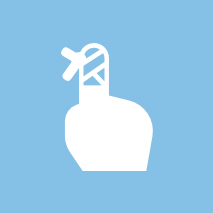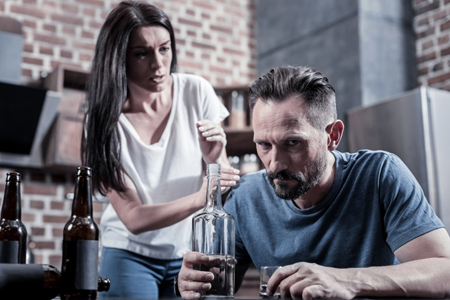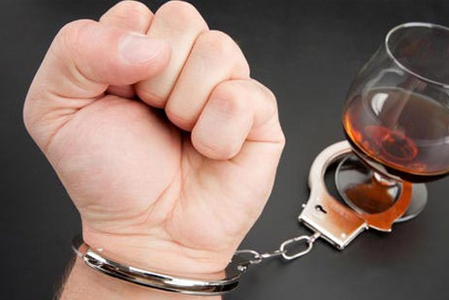Depression and alcohol addiction are closely related, making it difficult to tell whether one condition has caused the other. Some people will abuse alcohol in a bid to self-medicate the symptoms of depression, whereas others develop symptoms of depression as a result of their alcohol abuse. Whatever the cause of each illness, it is important that both are treated simultaneously if one is to achieve a full recovery.
What Is Depression?
There is a strong link between alcohol abuse and depression, but it can often be difficult to tell where one condition ends and the other begins. Some people drink alcohol to relieve their feelings of depression while others develop depression because of their alcohol abuse. Statistics show that those who suffer from mental health disorders such as depression and anxiety in the UK are twice as likely to be alcohol abusers. But it can be a struggle to tell which condition caused the other or whether they both developed around the same time due to some other underlying cause. What is certain though is that both conditions will need to be treated if you want to get your life back to normal.
Mental health charity MIND describes depression as ‘a low mood that lasts for a long time, and affects your everyday life’. While most people will describe themselves as having a low mood from time to time, this is not classed as depression.
It is normal to feel unhappy or sad every now and then, but if these feelings do not go away or if they are beginning to have a negative impact on normal everyday living, you may have a problem that requires treatment.
Signs and Symptoms of Depression
Depression can cause many symptoms, some of which will be physical while others are psychological. The symptoms that you experience will depend on the type of depression you have and how severe the condition is. Below are a few examples of the type of symptoms that might be experienced with depression:
Physical Symptoms
- Low energy
- Loss of libido
- Constipation
- Loss of appetite
- Slow speech or movement
- Aches and pains
- Trouble sleeping
- Menstrual problems
Psychological Symptoms
- A constant feeling of sadness or unhappiness
- Lack of interest in activities or hobbies
- Lack of motivation to do anything
- Low self-esteem
- Feelings of hopelessness
- Inability to feel joy
- Finding it hard to make decisions
- Feeling anxious or worried
- Feeling guilty
- Feeling suicidal
Types of Depression
Depression can come in many different forms and can have a variety of causes. Below are some of the common types of depression:
MAJOR DEPRESSIVE DISORDER is the term given to those who experience constant feelings of sadness or unhappiness. If you are experiencing a number of the symptoms of depression and have been on most days for longer than two weeks, you may be diagnosed with this mental health disorder.
As the name suggests, POST-NATAL DEPRESSION often occurs in the weeks and months after giving birth. Giving birth and having a new baby to take care of can be overwhelming and it can lead to some women struggling with mental health issues. Around 20% of all women experience a mental health issue either during pregnancy or in the first year after giving birth.
BIPOLAR DISORDER is also known as manic depression and it causes extreme mood swings. Those who suffer from bipolar disorder may experience periods where they are feeling full of energy followed by periods of being severely depressed.
CHRONIC DEPRESSION continues for two years or more, and while usually mild, can have a negative impact on daily life. Chronic depression is also known as persistent depressive disorder.
Depression Myths & Facts
Mental health disorders such as depression are commonly misunderstood and tend to carry a lot of stigma. This is often due to the myths that surround them. Below are examples of depression myths and the real facts:

Fact: Depression is a real illness that is caused by various biological, psychosocial, and social factors. It is a complex mental health condition and one that has nothing to do with character or weakness. The belief that depression is a sign of weakness can often prevent those affected from getting the help they need.

Fact: Those with no experience or understanding of this mental health problem will often question why another person is depressed and will comment that the perceived sufferer has nothing to be depressed about. This can make those who do have depression feel guilty about their symptoms, convinced that they have no right to be feeling the way they do. The reality is that sometimes depression can occur without any obvious cause.

Fact: While some people can attribute the cause of their depression to a traumatic life event, not everyone can. In fact, depression is not always caused by such events. Sometimes it is the result of genes or another underlying medical condition.
Is Your Antidepressant Working?
Although antidepressants can help some individuals to manage their symptoms of depression, they may not work for everyone. For some people, it requires psychotherapy to overcome the issues that are causing their symptoms of depression while for others it may need a combination of therapy and medication.
If you are taking antidepressants and feel as though these are not working, it is important that you speak to your doctor. It may be the case that your dosage is not quite right; when it comes to these medications, it is often a case of trial and error to get this right. It might also be the case that a different medication will work better for you.
Relief from antidepressants does not usually kick in for a number of weeks and it may take up to three months before you notice an improvement in your symptoms. If after this time you are experiencing no relief, you should talk to your doctor.
What is Alcoholism?
Alcoholism is also an illness of the brain, the symptoms of which can cause you to feel compelled to drink alcohol even when doing so will cause harmful consequences for yourself and/or others. The uncontrollable desire to drink will come before everything else in your life and will affect your relationship with family members, friends, and work colleagues.
Signs and Symptoms of Alcoholism

If you are suffering from alcoholism, you might not be aware of how serious your situation actually is. This is due to the impact that the chemicals in alcohol can have on your brain. Your first inkling that anything is wrong might come when loved ones express concern. It is important therefore that you know what the signs and symptoms of alcoholism are so that you can determine for yourself if you have a problem.
One of the first signs of alcoholism is an increased tolerance to the substance, which can cause you to require more alcohol to achieve the feelings you desire. If you are needing to drink increasing amounts of alcohol to achieve the same relief as before, you probably have a problem.
Think about how important alcohol is to you. When you first started drinking, you possibly weren’t that bothered about alcohol and could take it or leave it. Can you still say the same? How do you feel now if you cannot drink? If the idea of having to go somewhere where there will not be any alcohol fills you with dread and makes you feel anxious, it is highly likely that you are already addicted.
Another sign of alcoholism is an inability to stay away from alcohol or to stop drinking once you start. If you have repeatedly promised yourself that you would cut down or quit alcohol but have been unable to do so, the possibility that you have alcoholism is very real. If you also find your ability to stop drinking is diminished even when everyone else has had enough, you should be concerned.
One of the more telling signs of alcoholism though is the presence of withdrawal symptoms when you need a drink. You might find that you shake, sweat, or suffer from nausea when you need a drink. These symptoms are usually more pronounced in the morning when you have gone for several hours without any alcohol and when the effects are beginning to wear off. If you find that a couple of sips of alcohol help relieve these symptoms, it is time to talk to a medical professional about getting some help and considering alcohol rehab.
Does Alcohol Worsen Depression?

When you suffer from depression, you are likely to experience a number of symptoms, one of which is a feeling of sadness or unhappiness. You may believe that you can relieve these symptoms with alcohol, and perhaps for a while this will work.
Nevertheless, if you are constantly self-medicating with alcohol to relieve the symptoms of depression, the symptoms of depression, you are highly likely to build up a tolerance to it, meaning you will have a constant need to drink more to achieve the same effects.
What you need to know is that higher levels of alcohol can cause the pleasant effects of alcohol to be replaced with negative emotions. This can then lead to your feelings of depression worsening.
Alcohol Worsens Depression – Depression Worsens Alcohol Abuse
While alcohol abuse can lead to the symptoms of depression becoming worse, the same can be said in reverse. As feelings of depression worsen, your natural instinct may be to drink more alcohol. Nonetheless, with heavier alcohol use, serotonin levels in the brain drop. Unfortunately, it is serotonin that helps regulate your mood. Lowered levels of this chemical can result in a worsening of the symptoms of depression, which can then lead to a need to drink more alcohol. And so, a vicious cycle ensues.
Binge Drinking and Depression
Binge drinking is classed as drinking a large amount of alcohol over a short amount of time. However, because everyone is different, it is difficult to say exactly what is classed as a large amount of alcohol. Nevertheless, the Office for National Statistics has classified binge drinking as consuming more than eight units of alcohol in one session for men and more than six for women.
Many people believe that binge drinking is not harmful and that having a heavy drinking session every so often is completely safe. This is not the case. Binge drinking can lead to harmful consequences, including alcohol poisoning, and if it becomes a regular occurrence, it can lead to physical dependency or, potentially, addiction to alcohol.
Binge drinking is also known to cause depressive symptoms. Results of a 5-year study published by NCBI concluded that ‘a binge pattern involving intoxications, hangovers or pass-outs, produces depressive symptoms in the general population’.
Which Came First – Depression or Alcoholism?
In some people, it is easy to tell whether they began drinking to self-medicate their depressive symptoms; in others, it is not so straightforward though. Depression can often be caused by alcohol abuse, so it can be common for individuals to be misdiagnosed as having alcoholism only, when in fact they are suffering with both alcoholism and depression.
Overcoming Depression and Alcoholism
When alcoholism and depression occur at the same time, it is known as a dual diagnosis. Treating a dual diagnosis can be a challenge because it is difficult to tell whether depression or alcoholism came first. Dual diagnosis treatment requires specialist knowledge and a specialist understanding of the condition.
The best way to overcome a dual diagnosis of depression and alcoholism is for both conditions to be treated simultaneously. It is likely that you will be provided with a bespoke treatment plan that has been tailored to your specific needs and requirements if you are suffering a dual diagnosis. This type of treatment plan will include elements of psychotherapeutic therapies, complementary therapies, and medication and can be easily altered if necessary. At UKAT we provide a unique treatment plan for those struggling with alcoholism and depression.
How to Avoid Alcohol-Induced Depression?
If you have noticed an occurrence of depressive symptoms when you drink alcohol, it is wise to quit alcohol to see if there is any improvement. If your depression does improve after a few weeks, you will know that it was associated with your alcohol use.
It is recommended that you stick within the government’s recommended weekly guideline amount of fourteen units of alcohol going forward to reduce the chances of the symptoms of depression returning. You should also avoid binge drinking and ensure some days are kept alcohol-free.
Genes and lifestyle can contribute to both depression and alcohol abuse developing. It is thought that a family history of addiction or mental health problems can raise the risk of similar problems developing.
There is also evidence to suggest that lifestyle factors such as having a stressful job or eating a poor diet can increase the risk of either alcohol abuse or depression.


